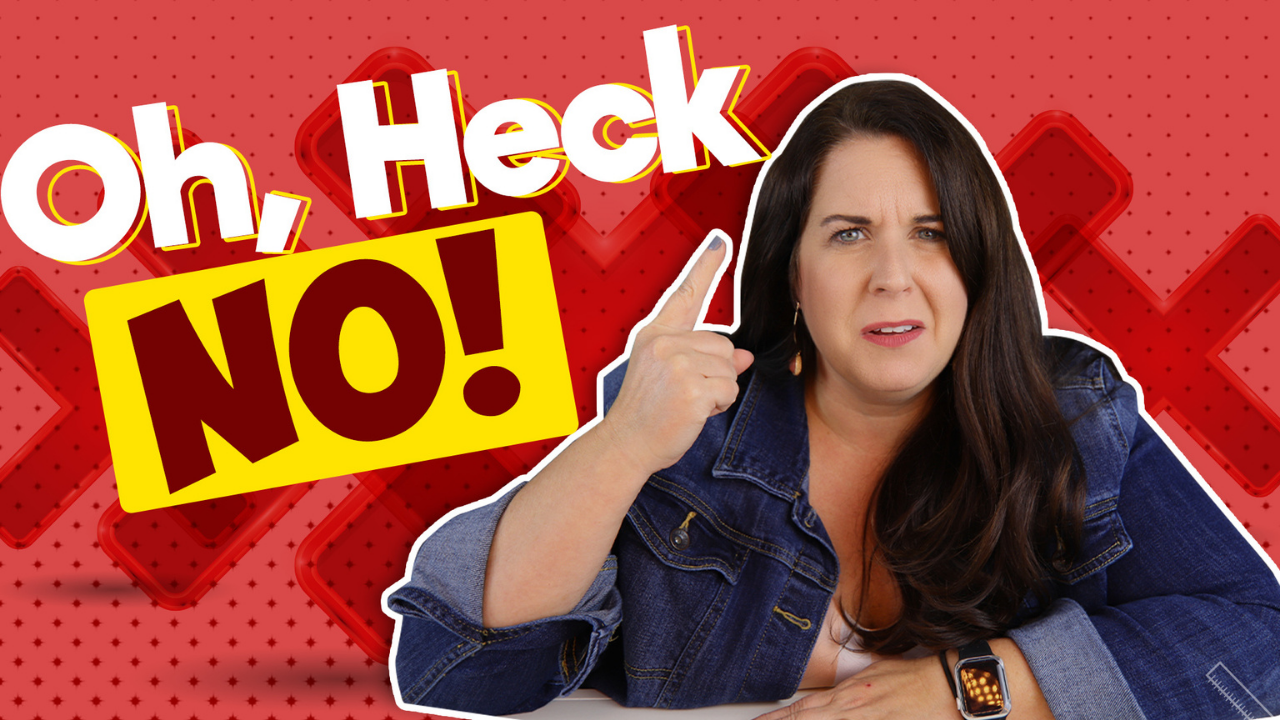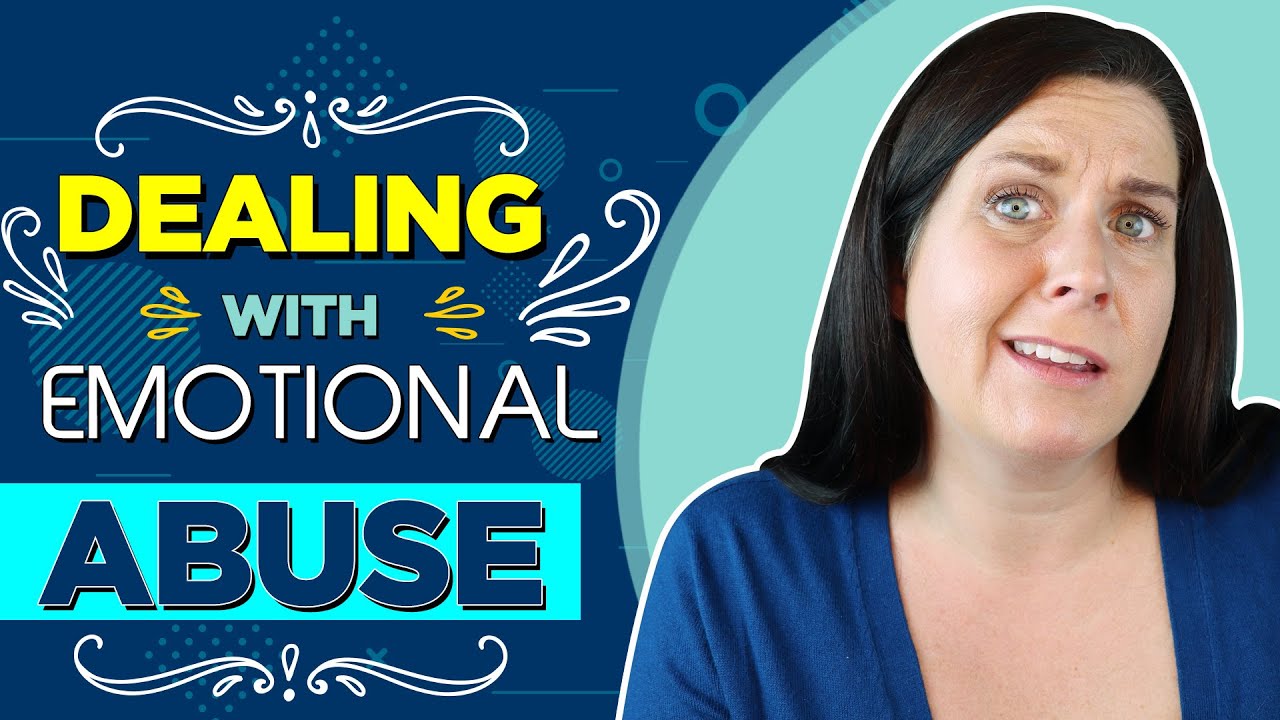Real Life Examples of What To Do When Someone Is Breaking Your Boundaries!
What do you do when someone continuously breaks your boundaries?
Do you have a person like that in your life?
Is it a friend, a family member, a loved one, a coworker, or a boss?
Boundaries are a huge topic in the realm of addiction recovery.
Now you might be thinking this video is only for the family members. Wrong! This video is for anyone who wants to learn more about holding healthier boundaries and how to do it more effectively. I know how frustrating it is to have a person in your life that can't seem to respect your boundaries.
The hard truth is no one else can break your boundary. Only YOU can break your boundary.
If someone else is crossing lines that you don't want them to cross, it means you're allowing them to break your boundary. It's so easy to fall into the idea that it's the other person that's the bad guy. I understand that on some level. Unfortunately, It doesn't work that way and ultimately falls on us to keep our boundaries. It's easy to get confused because we think a boundary is when we tell someone else what they can and can't do but what you should be saying is,
"No, I'm telling them what I will and won't tolerate."
If you don't have a plan for what you're going to do if X, Y, or Z situation happens, then you don't have a boundary. You can't say something to someone and think, okay, I've put it out there, and they're not going to do it because I've told them. Any time you set a boundary, you have to be prepared to back it up with action.
Let me give you some really common boundary issues that I hear all the time in family recovery:
"You have to be home by 11 o'clock."
A better way to set that boundary might be, "Hey, the door will be locked at 11 o'clock. If you're coming home for the night, make sure you're home by then. If not, I'll assume that you're staying out for the evening."
Now, you have to be willing to back this up, and it's a hard one. If your kid comes home after the designated time and they're ringing the doorbell, yelling, and banging, are you going to be able to stick with what you said before you say it?
"You can't use drugs in this house."
When you say you can't use drugs in this house, you can say something like if I find drugs in this house, here's what I'm going to do.
Maybe you're going to throw it away, or you're going to confront them about it. Whatever it is that you're going to do, that's the boundary, the boundary isn't, "you can't use drugs in this house." The boundary is, "if I find drugs in this house, here's what I'm going to do."
You can't tell someone else what they're going to do or not do. You can only control your behavior. Remember, you can only build the wall or gate around yourself. Any time you're starting with "you" or "you're" going to, or you're not going to, that's a good, clear indicator that you have now moved on to that side of the street and you're not setting an effective boundary.
Here's another one, and it's an important one.
"You have to be sober when you're with the kids."
I'm not saying this isn't a healthy boundary. You're going to have to figure out a more effective way of setting that boundary. You might say something like, "If I feel like you're intoxicated, I'm not going to leave the kids with you." "If I feel like you've been using or drinking, I'm not going to allow the kids in the car with you."
Those are boundaries that you can set on your side of the fence that you can then control because it's about you and not about them.
I want you to think about two things. First, I want you to think about why am I setting this boundary? Am I setting this boundary because it's what I need for myself, my children, my family, and my sanity? Am I doing it for myself, or am I doing it because I'm trying to control the other person?
The next question you have to think through is what am I going to do when blank happens? This is the key to setting a boundary.
There is absolutely no sense in setting a boundary if you're not willing to back it up. You're doing more harm than good because you're just training the other person that you aren't going to follow through, and that's the opposite of what you want.
As promised, I would get over to the other side of the street, which is, what about people who have addictions and are needing to set boundaries with their families? Yes, that is an issue. It's a really big issue because when you have addiction in a family system, everybody starts breaking boundaries, not just the person with the substance abuse problem.
The person struggling with substance abuse problems gets just as frustrated about those boundary violations. Here's a hard truth, most of the time, if you're a person with substance use problems, you don't have much leverage.
You don't have nearly as much leverage as the other person has. It makes it a little harder for you to set the boundaries. A boundary you might want to set is, "You can't tell me how to work my recovery program."
The question is, can you set a boundary around that? Yes! You can say, "I'm working the recovery program that I think is best." You have to be ready and willing to back that up.
A lot of times the person with the addiction is at the mercy of the other person. What's not okay is to try to demand, manipulate, throw a fit, or gaslight someone to get your way.
If you have a family member, a loved one, a friend, or someone who's crossing your boundary, it's your responsibility to get enough in control of your life. So that you can enforce your boundaries, which to be completely honest, usually means you have to have some level of independence.
You have to have your place or make your own money. As crappy as it may be, it's just another one of those things about addiction. In most cases, it puts you in a terrible financial position. It makes you very reliant on someone else, which is another good reason and motivator to conquer that addiction because you don't want to be controlled anymore.
If you're trying to get someone else's behavior or thought process to change, you might need to go about that a little bit differently. There's a way to influence someone in a good direction.
I'm going to put the link here to get access to my persuasion masterclass. It's a much more effective way to help lead someone else's behavior in the right direction.
Amber Hollingsworth
Take Amber's Free Boundaries Quiz 👉🏻https://www.familyrecoveryacademy.online/boundaries-quiz
I want you to watch this video next, because it's about boundaries that you should always, always, always keep! These are the lines in the sand that should be there for you no matter what the situation is.


